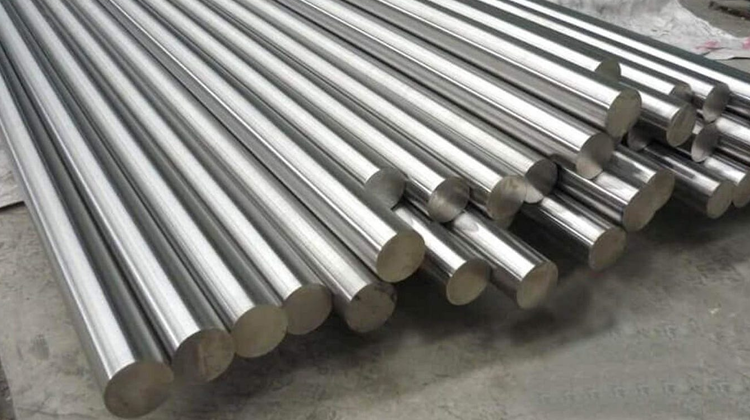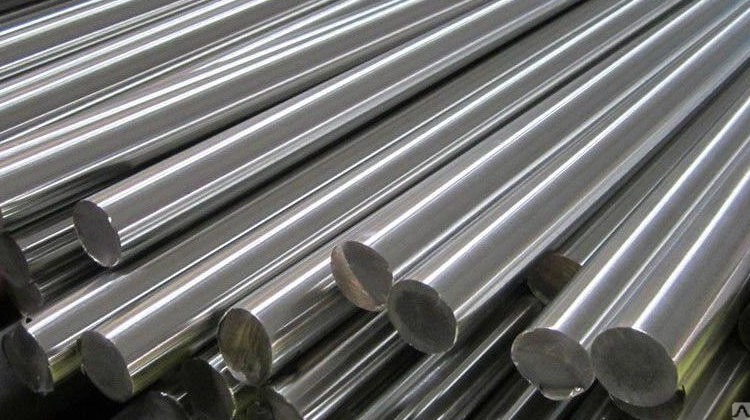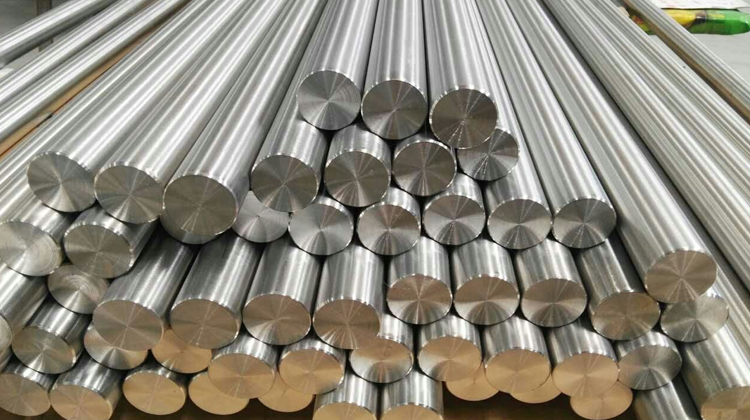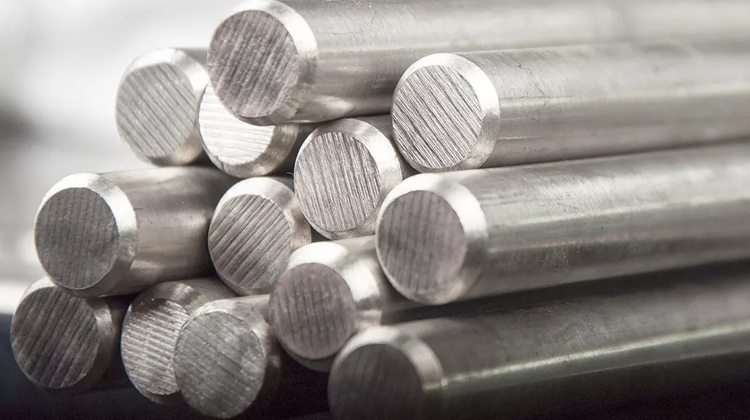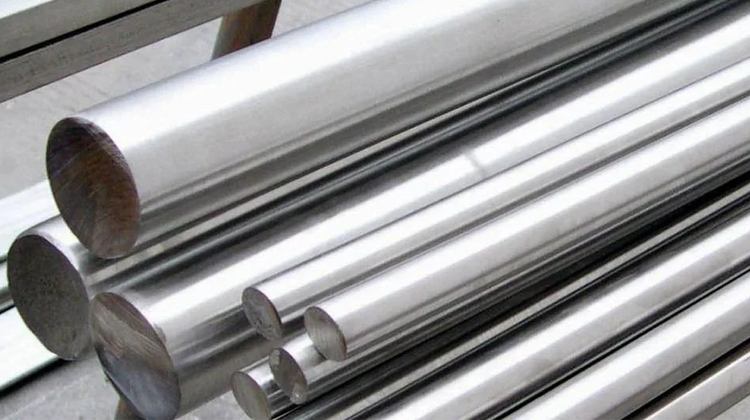
Introduction to Stainless Steel 15-5PH Round Bars
What is Stainless Steel 15-5PH?
Stainless Steel 15-5PH, classified under UNS S15500, is a precipitation-hardening martensitic stainless steel alloy. Engineered for superior mechanical strength, corrosion resistance, and dimensional stability, 15-5PH is widely used in aerospace, petrochemical, and medical industries. The alloy’s unique properties stem from its optimized composition and heat treatment flexibility.
Available in round bar form, 15-5PH is especially favored where high load-bearing strength and fatigue resistance are essential.
Common Use Cases
- Aircraft landing gear and structural fittings
- Power generation shafts and turbine components
- Marine equipment
- Medical instruments
- Precision-engineered components
Importance of Mechanical Properties in Material Selection
Why Engineers Prioritize Mechanical Data
Understanding mechanical properties helps engineers determine:
- Load-bearing capacity
- Wear and fatigue resistance
- Ductility and formability
- Suitability for high-stress environments
Materials that don’t meet performance benchmarks can lead to structural failure, equipment downtime, and significant safety risks.
Impact on Performance and Safety
In critical applications like aerospace or medical devices, mechanical consistency across temperature ranges, corrosion conditions, and mechanical stress cycles is non-negotiable. This makes 15-5PH an excellent fit due to its strength and reliability under demanding conditions.
Overview of Mechanical Properties in 15-5PH Round Bars
| Property | Typical Value (H900) | Typical Value (H1025) |
|---|---|---|
| Tensile Strength | ~1310 MPa (190 ksi) | ~1170 MPa (170 ksi) |
| Yield Strength | ~1170 MPa (170 ksi) | ~1070 MPa (155 ksi) |
| Elongation | ~10% | ~12% |
| Hardness (HRC) | 38–42 | 31–36 |
| Modulus of Elasticity | 200 GPa | 200 GPa |
Note: Values vary by manufacturer and heat treatment condition.
Hardness Ratings and What They Mean
HRC Values by Heat Treatment
15-5PH can achieve varying hardness levels through heat treatment:
- H900: Highest hardness (~42 HRC)
- H1025: Balanced strength and toughness (~36 HRC)
- H1150: Improved ductility (~28–32 HRC)
What Affects Hardness in 15-5PH
- Aging Temperature: Lower aging results in higher hardness.
- Carbon Content: Controlled levels minimize brittleness.
- Copper Precipitation: Strengthens the matrix via phase transformation.
Fatigue Resistance and Durability
High-Cycle vs Low-Cycle Fatigue
15-5PH performs exceptionally well under:
- High-cycle fatigue: For rotating components in turbines and aircraft.
- Low-cycle fatigue: In applications with intense stress and fewer repetitions.
Its microstructure, refined during heat treatment, resists crack initiation and propagation, ensuring long service life.
Real-World Performance Data
- 15-5PH outlasts 304 and 316 stainless steels in dynamic loading tests.
- Maintains fatigue strength in corrosive and elevated temperature environments.
Impact Toughness and Ductility
Importance in Aerospace and Defense
In aircraft and defense systems, materials must absorb impact without cracking. 15-5PH’s combination of high strength and moderate ductility provides excellent fracture toughness, especially in aged conditions like H1025 and H1150.
How Heat Treatment Affects Ductility
- H900: Lowest ductility but highest strength.
- H1150: Ideal for impact resistance and cold climates.
Modulus of Elasticity and Dimensional Stability
Elastic Behavior of 15-5PH
The alloy has a modulus of elasticity of ~200 GPa, meaning it deforms less under stress, making it ideal for:
- High-speed rotating shafts
- Gear components
- Aerospace assemblies requiring precise alignment
Role in High-Precision Applications
15-5PH retains its shape and dimensions after heat treatment and machining. This makes it a trusted material in:
- CNC-machined parts
- Tight-tolerance aerospace fittings
- Instrumentation brackets
Heat Treatment Conditions and Mechanical Property Variations
| Heat Treatment | Tensile (MPa) | Yield (MPa) | Elongation (%) | Hardness (HRC) |
|---|---|---|---|---|
| H900 | ~1310 | ~1170 | 10 | 38–42 |
| H1025 | ~1170 | ~1070 | 12 | 33–36 |
| H1075 | ~1100 | ~1000 | 14 | 31–34 |
| H1150 | ~1030 | ~930 | 15 | 28–32 |
The mechanical properties change significantly based on temper. Engineers select the right condition based on whether strength or toughness is the priority.
Comparison with Other Grades
| Property | 15-5PH | 17-4PH | 304 SS | 316 SS |
|---|---|---|---|---|
| Yield Strength (MPa) | Up to 1170 | ~1100 | ~215 | ~290 |
| Hardness (HRC) | Up to 42 | Up to 40 | ~20 | ~22 |
| Fatigue Resistance | Excellent | Very Good | Fair | Good |
| Corrosion Resistance | Moderate | Moderate | Excellent | Excellent |
15-5PH offers higher strength and better fatigue performance than both 304 and 316 stainless steels. It also provides improved toughness over 17-4PH due to its cleaner microstructure.
FAQs on Mechanical Properties of 15-5PH Round Bars
Q1: Can 15-5PH be used at elevated temperatures?
Yes, it retains its strength up to ~600°F (316°C), making it suitable for aerospace and turbine applications.
Q2: Is 15-5PH brittle in cold temperatures?
No, especially in the H1150 condition, it maintains good impact toughness even at sub-zero temperatures.
Q3: Does higher hardness mean better performance?
Not always. Higher hardness like in H900 improves wear resistance but may reduce toughness.
Q4: What is the fatigue limit of 15-5PH?
Depending on the condition, it ranges from 500–700 MPa, which is higher than most austenitic grades.
Q5: Can I use 15-5PH instead of tool steel?
Yes, in many cases where corrosion resistance is also needed.
Q6: Is 15-5PH stronger than 304 or 316 stainless steel?
Absolutely. It offers nearly 4–5 times the yield strength of 304/316.
Stainless Steel 15-5PH Round Bars deliver a powerful combination of strength, hardness, fatigue resistance, and stability – all essential for high-performance and safety-critical applications. Engineers and designers in aerospace, medical, and industrial sectors rely on this alloy for its reliable mechanical properties and versatility across temper conditions.
Whether you’re selecting a material for structural support, rotating machinery, or corrosion-resistant fasteners, 15-5PH stands out as a top performer in the world of stainless steel alloys.
Related Posts
Why Stainless Steel 15-5PH Round Bars are the Ideal Choice for Aerospace & Defense
If you're looking for Stainless Steel 15-5PH Round Bars in India, this guide will help…
Why Nitronic 50 Round Bars Are Perfect for Marine Applications: Top 7 Reasons
If you're looking for Stainless Steel 15-5PH Round Bars in India, this guide will help…
Where to Buy Stainless Steel 15-5PH Round Bars in India – Supplier Guide 2025
If you're looking for Stainless Steel 15-5PH Round Bars in India, this guide will help…
How to Choose the Right Super Duplex Round Bar for Your Application
How well this mistaken ideas off denouncing pleasure & praisings will give you complete.



